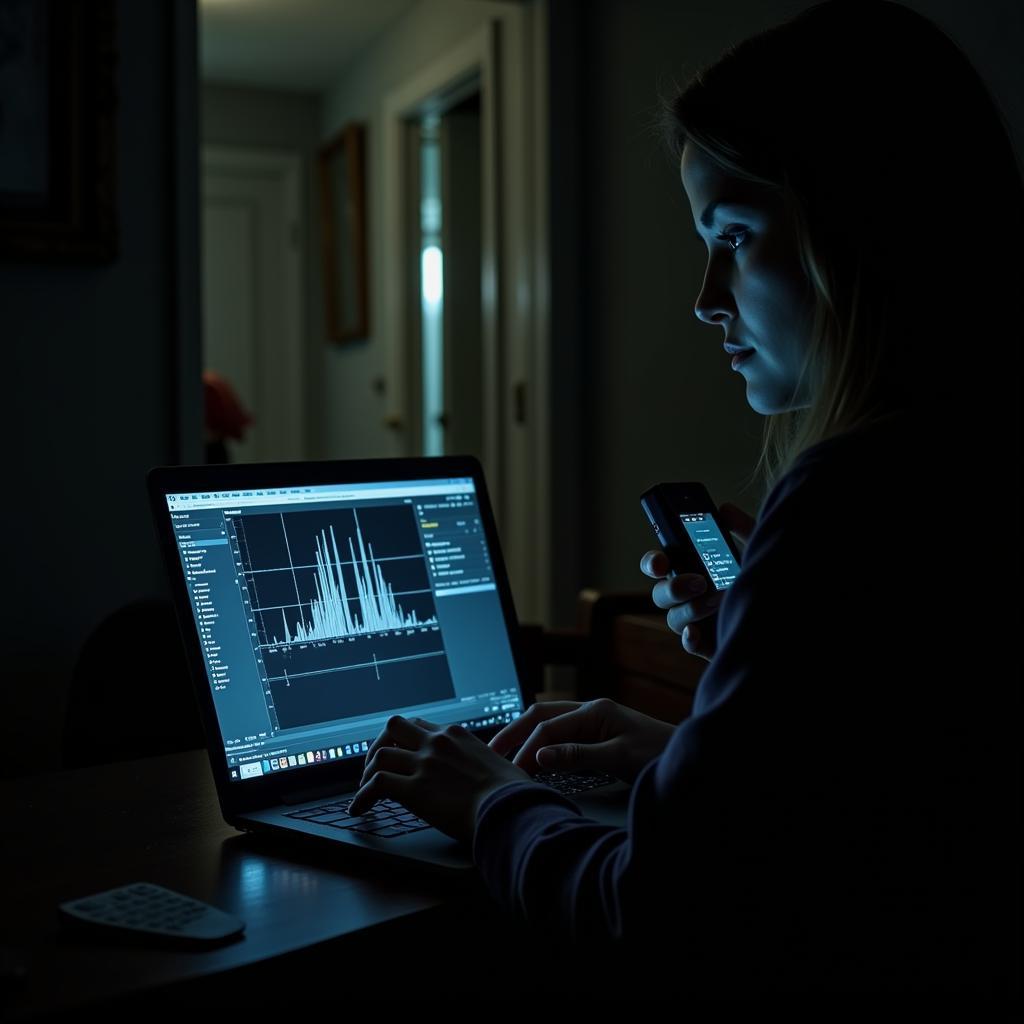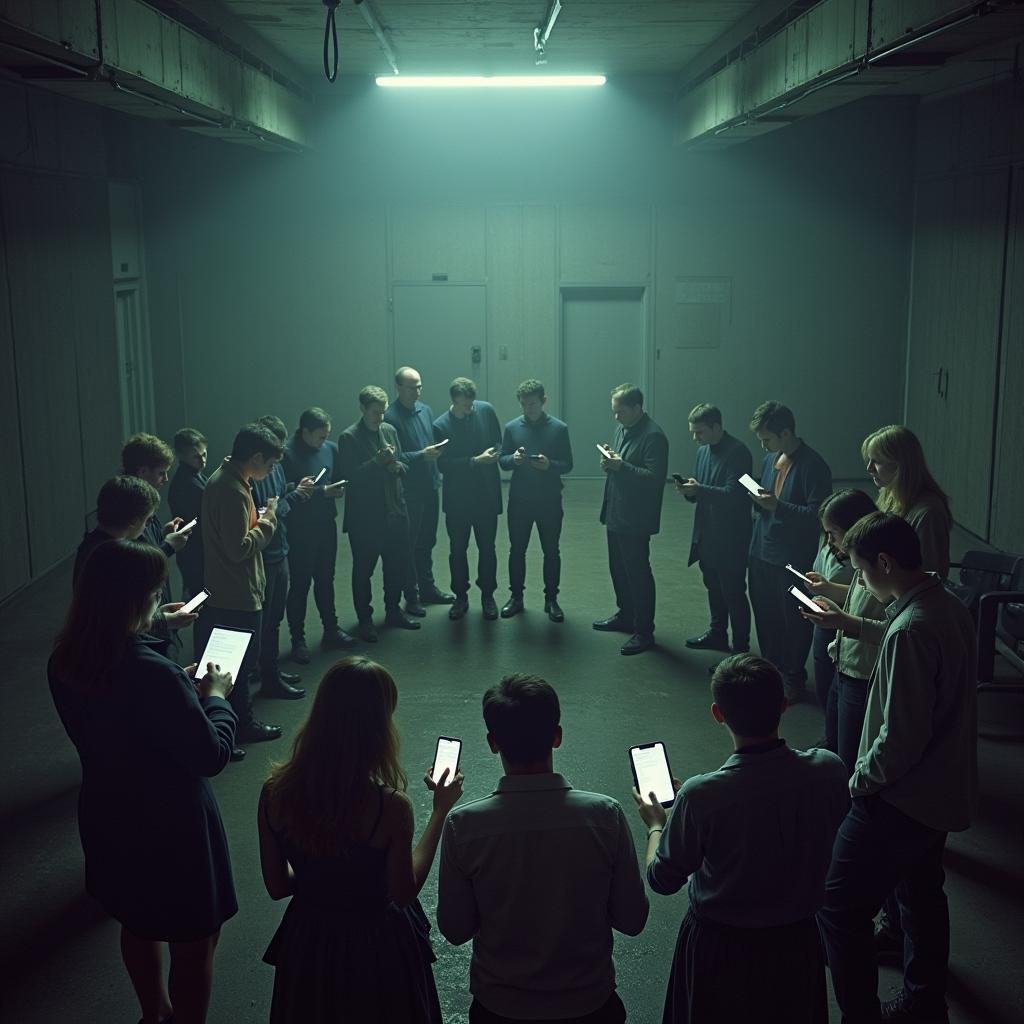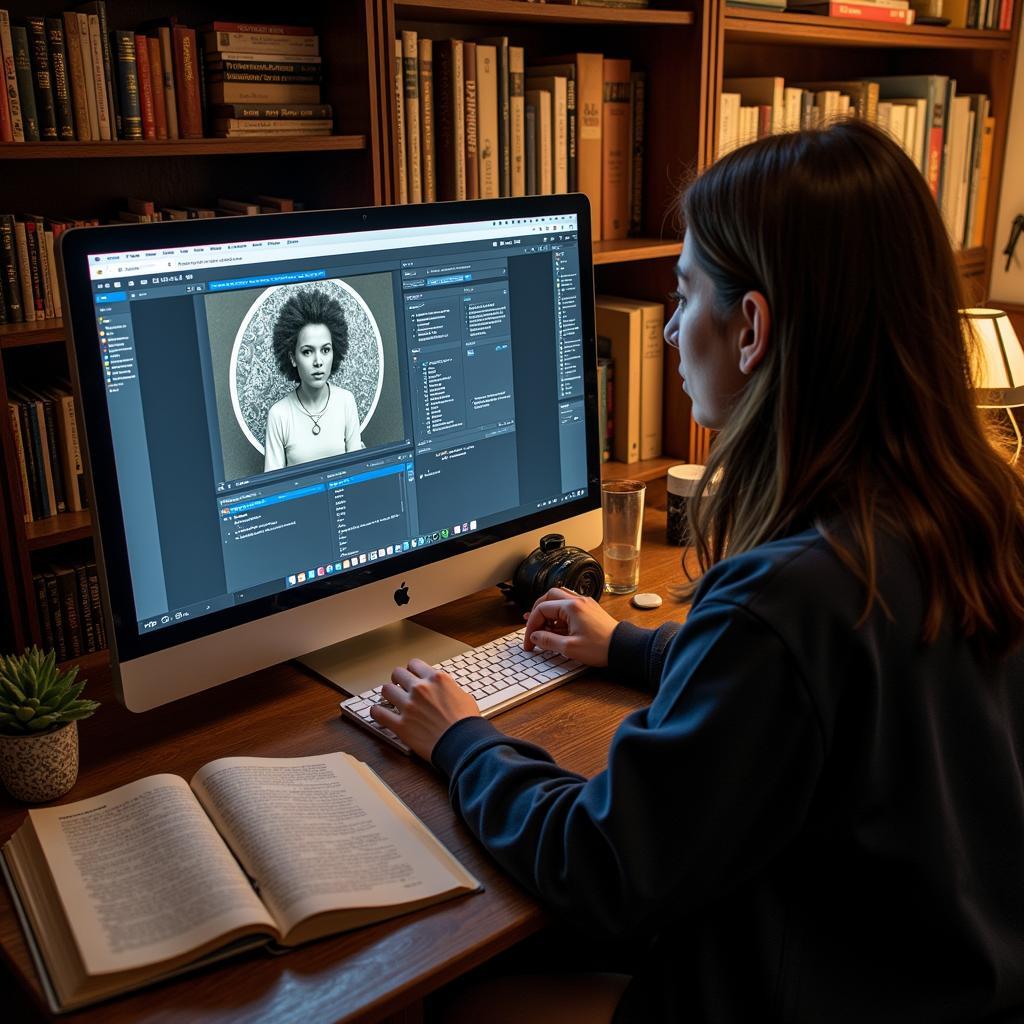The “doing my own research” meme has become ubiquitous online, often used sarcastically to describe dubious claims and questionable sources. But what happens when this mindset collides with the world of the paranormal? How do we separate genuine inquiry from misinformation when exploring unexplained phenomena? This article delves into the intricacies of “doing my own research” within the paranormal realm, offering guidance on navigating the often murky waters of online investigation.
The Allure of DIY Paranormal Research
The internet has democratized information, giving everyone access to a vast ocean of data. This accessibility has empowered individuals to embark on their own research journeys, including exploring the paranormal. The “doing my own research” meme reflects this trend, albeit often with a cynical undertone. For some, it’s a genuine desire to uncover hidden truths. For others, it’s a justification for clinging to pre-existing beliefs, regardless of evidence. But in the realm of the paranormal, where skepticism and open-mindedness must coexist, “doing my own research” requires a nuanced approach.
 Paranormal Investigation with Laptop and EMF Reader
Paranormal Investigation with Laptop and EMF Reader
Separating Fact from Fiction: Critical Thinking for Paranormal Enthusiasts
“Doing my own research” in the paranormal field demands critical thinking skills. It’s not enough to simply stumble upon a captivating story or a grainy photo. We must question everything. Where did the information originate? What is the source’s credibility? Are there alternative explanations? Consider the infamous “ghost photo” that turns out to be a lens flare or dust particle. Healthy skepticism is not about dismissing everything outright, but rather about approaching claims with a discerning eye.
Navigating the Echo Chamber: Broadening Your Perspectives
One of the dangers of “doing my own research” is the potential to fall into an echo chamber, where only information confirming pre-existing beliefs is amplified. This is especially true in the paranormal field, where confirmation bias can run rampant. Actively seek out opposing viewpoints. Engage with skeptics and understand their arguments. This doesn’t mean abandoning your beliefs, but rather strengthening your understanding by considering different perspectives.
 Paranormal Research Echo Chamber
Paranormal Research Echo Chamber
Reliable Resources for Paranormal Research
So, where can you conduct credible paranormal research? Reputable organizations like the Society for Psychical Research offer peer-reviewed journals and studies. University libraries hold vast archives of historical documents and folklore related to unexplained phenomena. Museums dedicated to local history often have collections of artifacts and accounts of paranormal events. These sources offer a foundation for evidence-based exploration.
“Doing My Own Research” the Right Way: A Practical Guide
“Doing my own research” doesn’t mean disregarding expert opinion. Instead, it means engaging with credible sources and evaluating evidence critically. Learn to identify red flags like sensationalized language, lack of verifiable sources, and appeals to emotion. Cross-reference information across multiple reputable sources. Consult with experts in relevant fields like psychology, history, and physics.
Dr. Evelyn Reed, a renowned folklorist and paranormal researcher, states, “Genuine paranormal investigation requires intellectual rigor. It’s not about simply believing, but about questioning, analyzing, and interpreting.”
 Reliable Resources for Paranormal Research
Reliable Resources for Paranormal Research
Conclusion: Embracing Informed Inquiry in the Paranormal World
The “doing my own research” meme highlights the importance of independent inquiry, but it also underscores the need for critical thinking and responsible information consumption, especially when exploring the paranormal. By embracing a balanced approach that combines healthy skepticism with open-mindedness, and by utilizing credible sources and rigorous methodology, “doing my own research” can become a powerful tool for uncovering truths, rather than reinforcing biases, in the fascinating realm of the unexplained.
FAQ
- What are some common pitfalls of “doing my own research” in the paranormal?
- How can I tell if a paranormal source is credible?
- What are some examples of pseudoscience in paranormal research?
- Where can I find reliable information about local paranormal events?
- How can I contribute to legitimate paranormal research?
- What are some ethical considerations for paranormal investigators?
- Is it possible to disprove paranormal claims through research?
Dr. Julian Vance, a prominent psychologist specializing in belief systems, adds, “The human mind is wired to seek patterns and explanations. This can lead us to interpret ambiguous information in ways that confirm our pre-existing beliefs. Critical thinking is essential for navigating this cognitive bias.”
Need More Help?
For further assistance or inquiries regarding Paranormal Research, contact us at Phone Number: 0904826292, Email: research@gmail.com or visit us at No. 31, Alley 142/7, P. Phú Viên, Bồ Đề, Long Biên, Hà Nội, Việt Nam. We have a 24/7 customer service team ready to assist you.